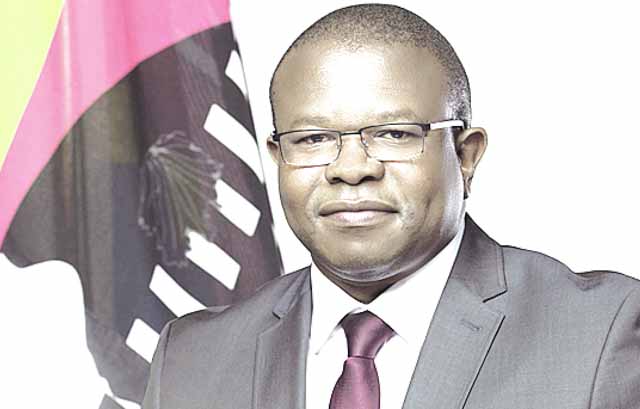By SIBUSISO DLAMINI | 2024-12-29

The proposed conversion of the Eswatini National Provident Fund (ENPF) into a national pension scheme could significantly boost the country’s economy and tackle its unemployment crisis, says Chief Executive Officer Futhi Tembe.
The initiative, according Tembe, is not only designed to provide long-term financial security for members, but also promises to inject significant economic benefits into the nation, particularly through local investments and job creation.
“This is more than just a retirement plan, but a blueprint for this nation’s prosperity,” said Tembe in an interview where she emphasised that the conversion had huge potential to unlock billions in local investments, create jobs, and provide lasting financial security for members.
“One of the most compelling aspects of the proposed pension scheme is its potential to drive local economic growth,” she stated, positioning the proposed scheme as a key driver of national development.
With total assets exceeding E6.5 billion as of 2024, the ENPF is already a significant player in country’s financial landscape and under the new scheme; Tembe revealed plans to amplify local investments, creating opportunities for large-scale projects that could act as catalysts for broader economic development.
“The conversion will enable us to strategically partner on projects that would have been unattainable otherwise. From infrastructure development to energy initiatives, the national pension scheme will not only provide capital, but also the expertise needed to propel Eswatini forward,” she explained.
Among ENPF’s impressive local investment portfolio that has strategically positioned the fund as a key player in driving the country’s economic growth, are several high-profile ventures, such as the 100 per cent ownership of the Happy Valley Hotel, a major contributor to the hospitality sector.
The fund also holds a significant 61.95 per cent stake in the Industrial Development Company of Eswatini (IDCE), fostering industrial growth and enterprise development.
Further diversifying its portfolio, ENPF owns Montigny, a leader in the forestry industry.
In the telecommunications sector, ENPF has a 20 per cent stake in Eswatini Mobile.
Additionally, the fund has a 15 per cent ownership in Old Mutual Eswatini and Pick n Pay, supporting the financial services and retail sectors.
With 59 per cent of the fund’s investment in Eswatini and the rest in South Africa and offshore, Tembe said the ENPF has demonstrated its ability to manage significant financial portfolios, and therefore, argued that the national pension scheme would enable the fund to channel more resources into local projects, ensuring that the country reaps the full benefits of its assets.
“The financial muscle we would bring to the table is unparalleled. This is the kind of capital that can transform ideas into reality, whether it is infrastructure projects, technology and innovation projects, private equity, or renewable energy projects,” Tembe said.
The ENPF CEO also highlighted the potential for job creation as another standout benefit, stating that by redirecting funds towards local investments, the ENPF aims to stimulate industries that can absorb a significant portion of the unemployed, particularly the youth.
With the country’s youth unemployment rate alarmingly high, Tembe sees this as an opportunity to turn the tide.
“Every large project we undertake has a ripple effect. Construction projects, for instance, generate jobs directly and indirectly by boosting demand for goods and services. This is how we create a cycle of growth that benefits everyone,” she said.
The CEO put emphasis on the fact that the ENPF’s overarching vision is to be a world-class social security fund that contributes positively to its members and the country’s socio-economic development, and on that account, maintained that the national pension scheme aligns seamlessly with this vision by promoting financial inclusion, reducing poverty in old age, and creating investment opportunities.
“Our goal is not just to alleviate poverty among retirees but to contribute meaningfully to the growth of Eswatini’s economy. This is a win-win for everyone,” she stated.
Currently, ENPF operates as a provident fund, paying members a lump sum upon retirement. While this provides immediate financial relief, Tembe highlighted that the arrangement as it stands has its limitations
“A lump sum offers no continuous income, leaving retirees vulnerable to poverty as they age,” she said, arguing that the proposed national pension scheme, in contrast, would ensure members receive a monthly income for life.
This model, Tembe explained, is particularly effective in addressing social income disparities, as it guarantees a stable source of income even in later years.
“This isn’t just about providing retirement security. It’s about ensuring that our elders can live with dignity while reducing the financial burden on families and the State,” said the CEO.
Regarding the transition from provident fund to pension scheme, she explained that it would involve transferring members’ contributions to the new fund, specifically members less than 45 years of age who will automatically qualify for the pension scheme, while those above 45 will have the option to ‘buy’ past contribution years using their provident fund savings.
Tembe reassured members that the current contribution structure would remain unchanged, with employees and employers each contributing five per cent of earnings capped to a ceiling.
“The impact of these contributions however, will be significantly enhanced under the pension model,” she said.
While the proposal has faced its share of scepticism, particularly concerning its feasibility and impact on members’ savings, Tembe acknowledged these concerns but emphasised the rigorous planning behind the scheme.
“This isn’t a spur-of-the-moment decision. Every aspect has been carefully designed to ensure it is sustainable and beneficial for all stakeholders,” she assured, making it known that the ENPF has already begun engaging stakeholders to ensure a smooth transition and to address any lingering misconceptions.
She therefore, urged members and the public to view the conversion as an investment in the country’s future, putting emphasis on the fact that as the country continues to grapple with economic challenges, the ENPF’s proposed national pension scheme offers a beacon of hope.
“By leveraging its financial resources to stimulate local investments and create jobs, we are creating a legacy where retirees live comfortably, and where the youth find meaningful employment while our nation thrives economically,” she stated.
share story
Post Your Comments Below
THE Eswatini Reptile Centre has warned the nation to be on the lookout for seven deadly snakes as...

The country’s business sector is beaming with excitement about the endless opportunities to...

The country’s wealth distribution is controlled by 20 per cent of the population according ...

SOCCER - Manzini Wanderers’ hopes of playing in the league this season have suffered ...
All material © Swazi Observer. Material may not be published or reproduced in any form without prior written permission.
Design by Real Image Internet